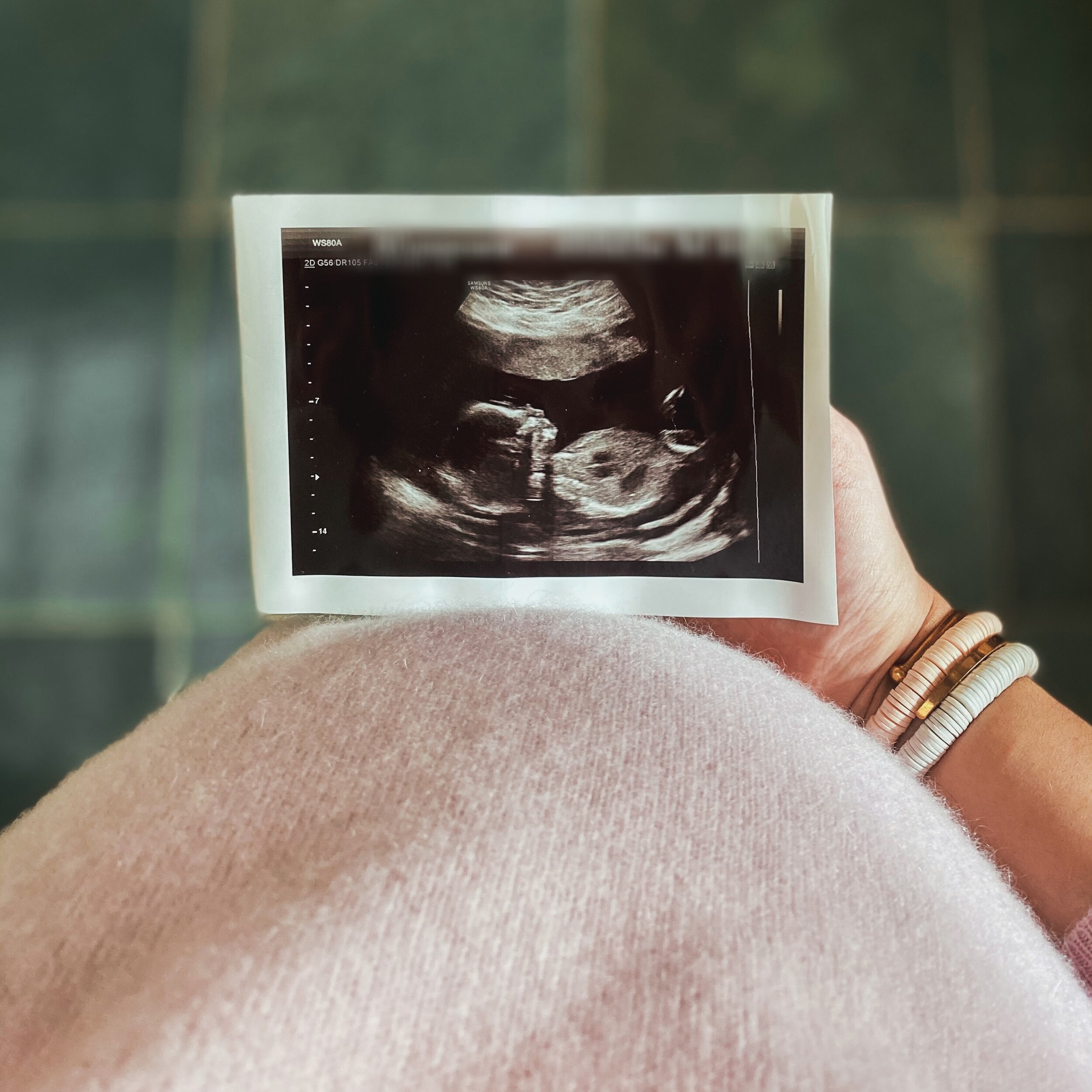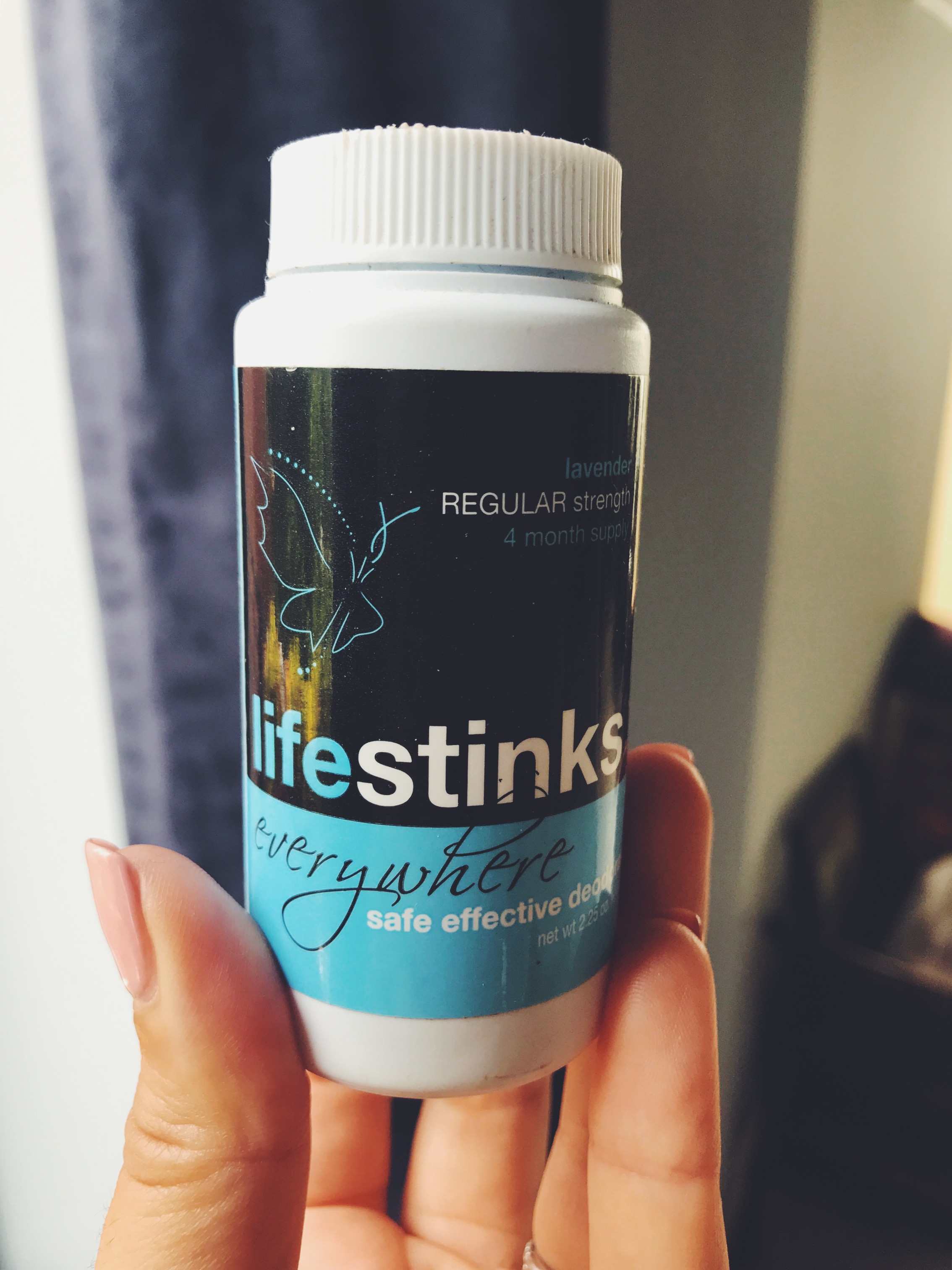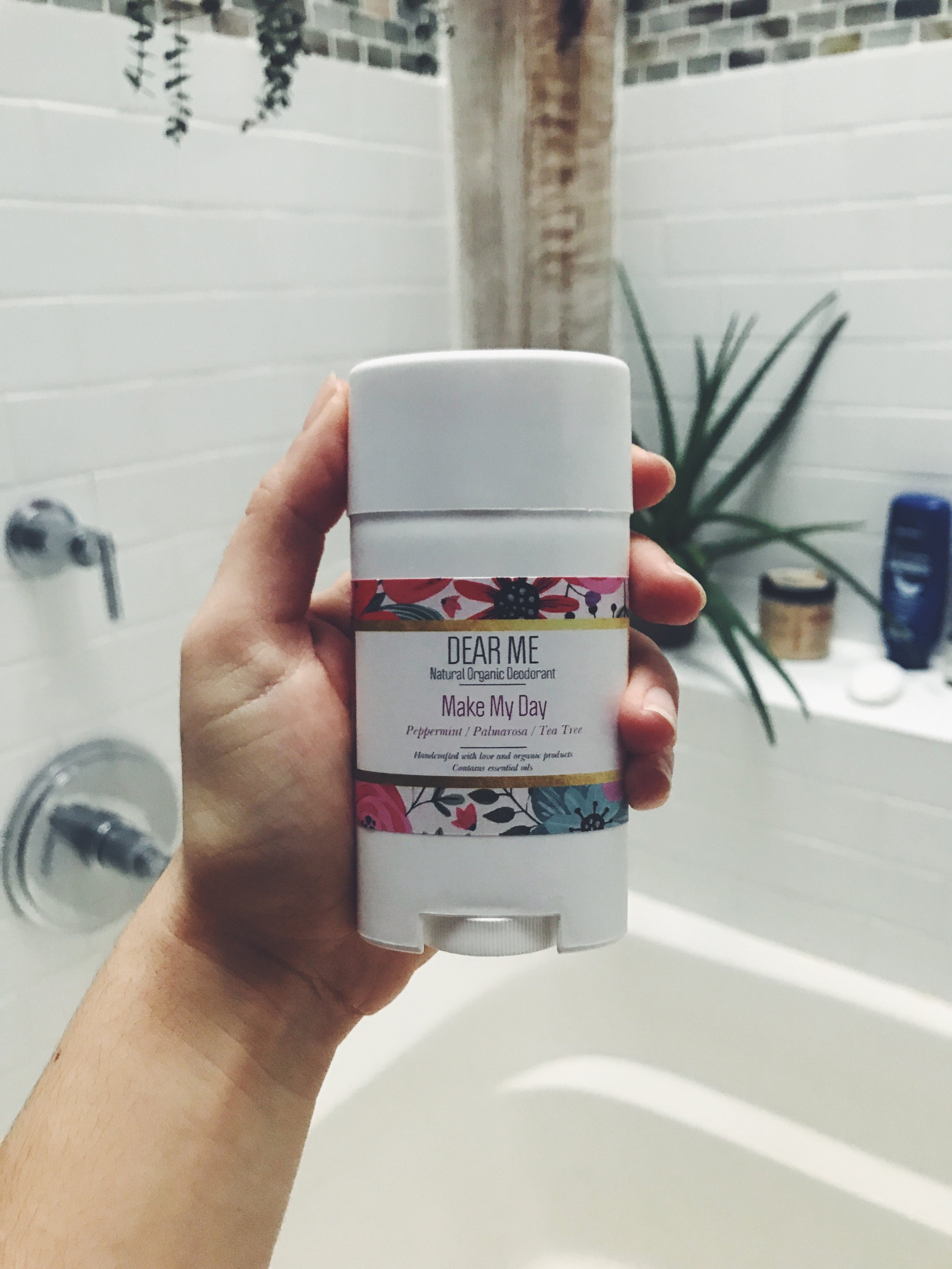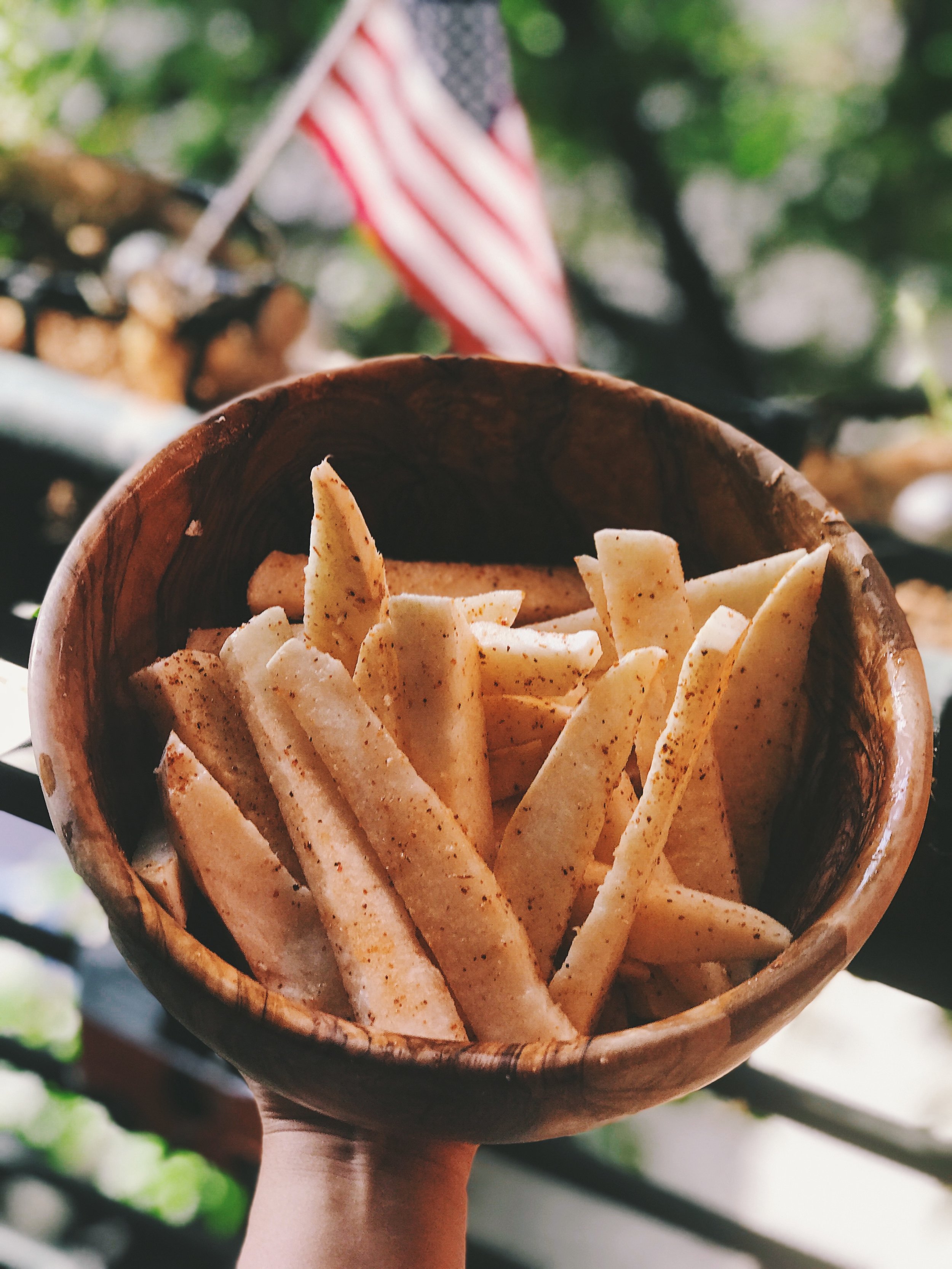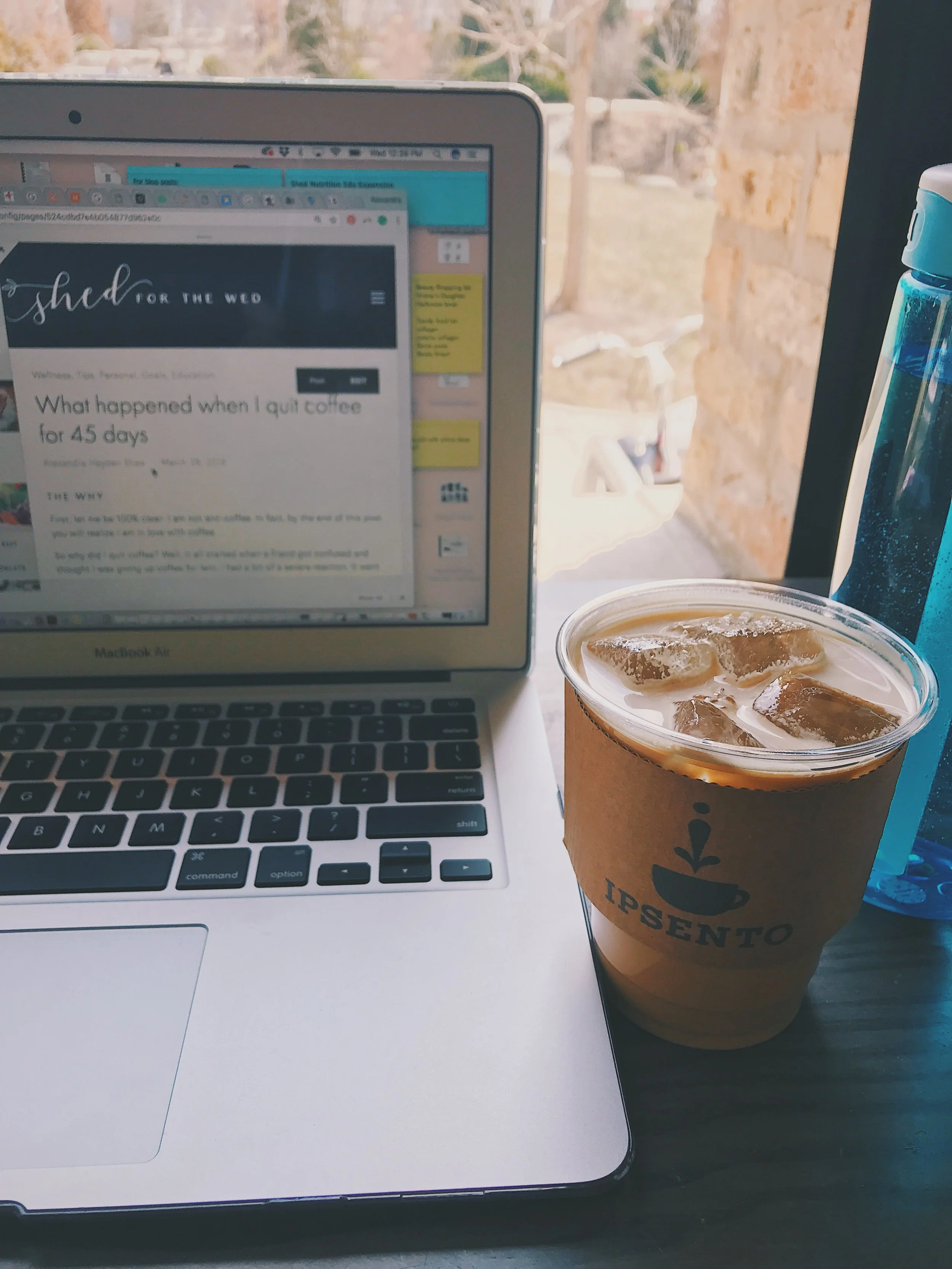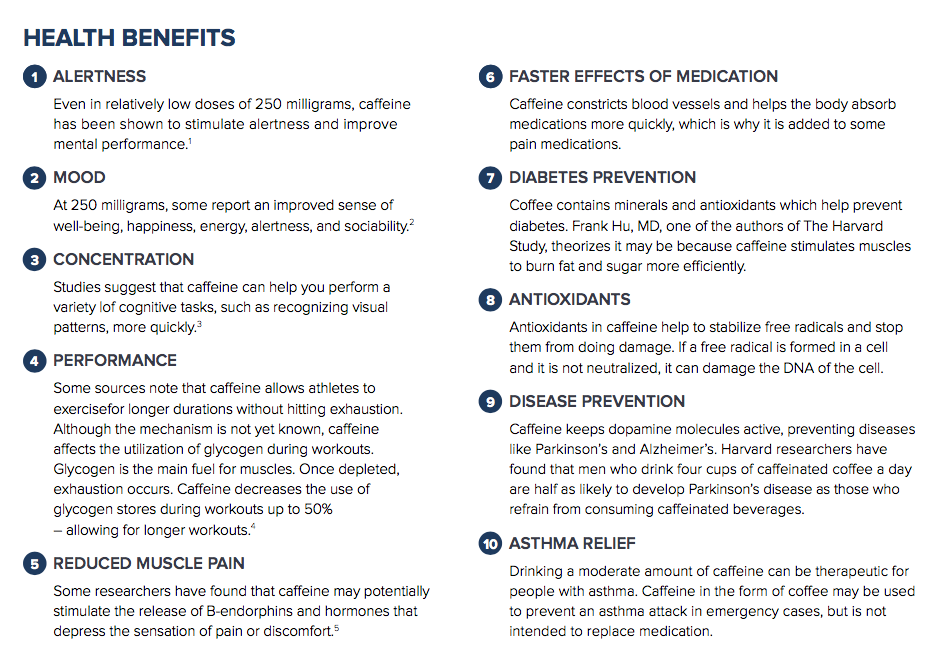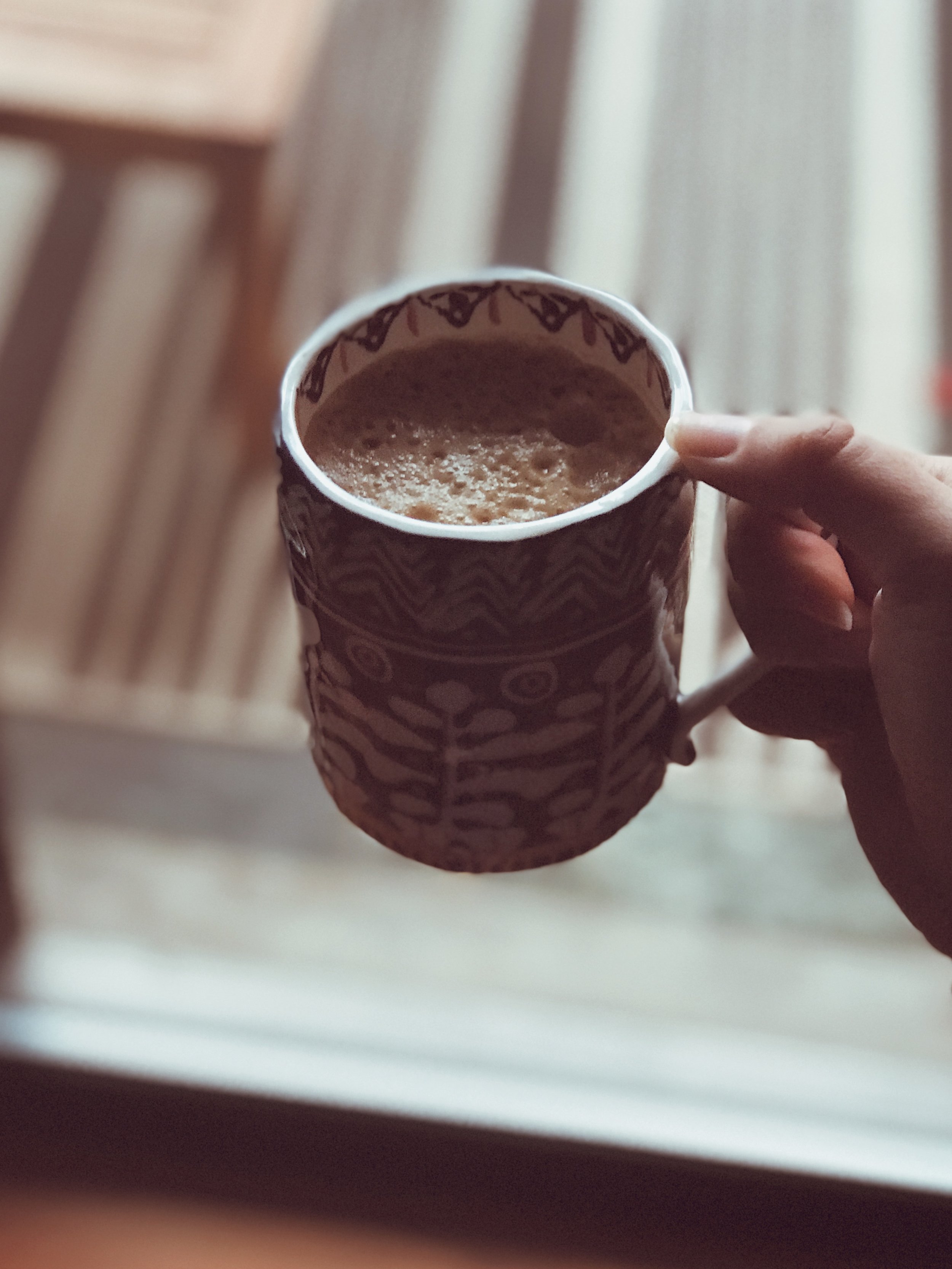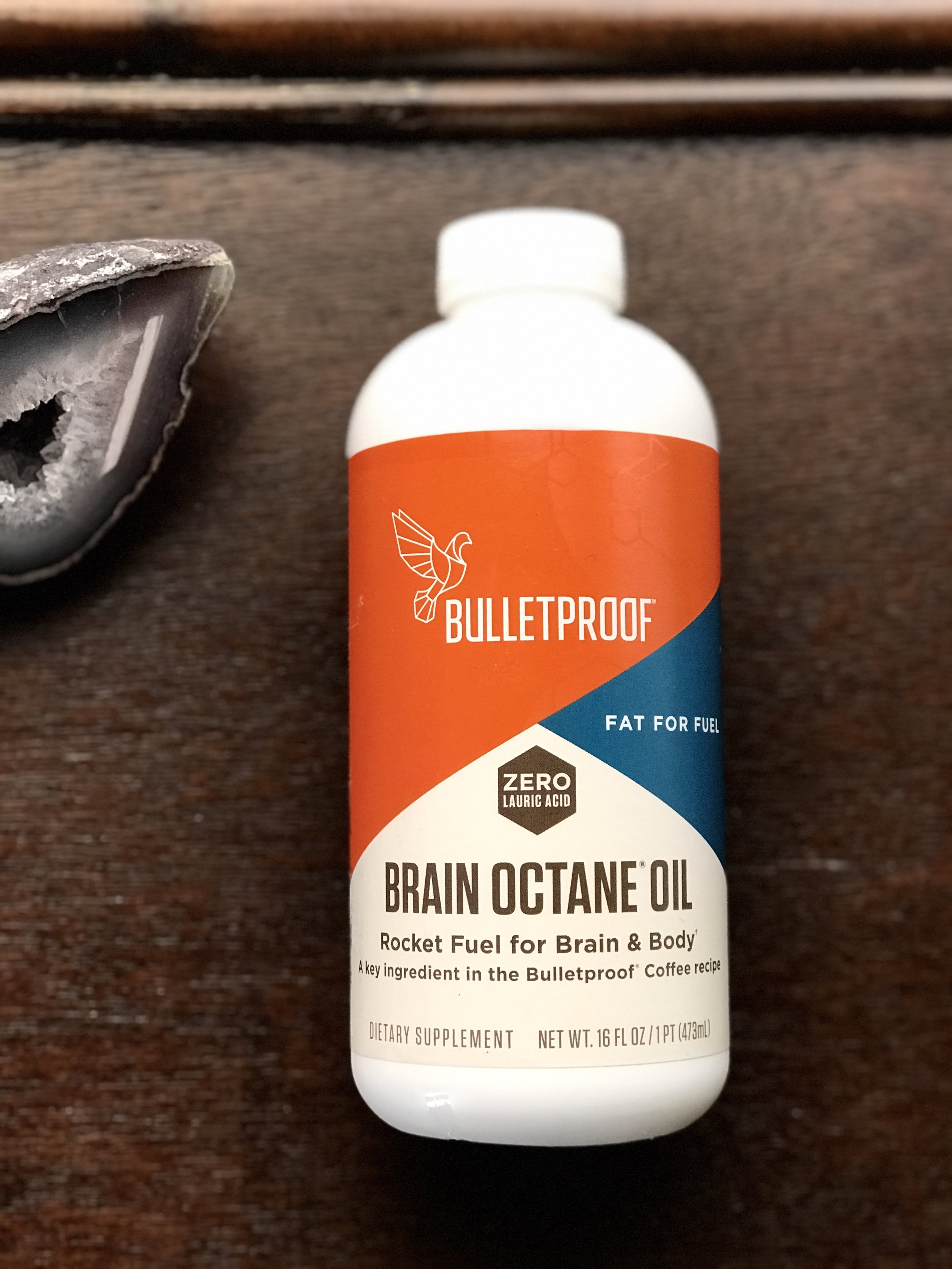Natural deodorant has been around for years, but I've noticed a huge uptick recently in people ready to make the shift! It has been on my mind for a while, and for a while I mean about 13 years. My step-mom is a breast cancer survivor and since she went through the experience, natural deodorant has been on my to-do list (continue reading for the "why"). But when is the right time to make the switch? Would it be okay to do before your wedding? This post walks you through my experience switching to natural deodorant and my recommendation for when to make the switch.
Why to switch
I'm not a super smelly or sweaty person.... or so I thought. I had been using a regular solid antiperspirant stick for years. It worked very well, but, the main active ingredient was aluminum.
Why do regular antiperspirants use aluminum? It blocks the sweat glands, preventing sweat from coming out. [Sweat itself doesn't smell, but when it interacts with bacteria on the body, it can create an odor. This is why depending on who you are- you may be more or less smelly. Different types of bacteria thrive on different skin types. This is also why good hygiene is key. Shower, people!] But what is the issue with aluminum? From Cancer.org:
That being said, it is important to note that no studies have confirmed that aluminum could increase breast cancer risks. Another doozy that has been associated with aluminum products - Alzheimers! Again, there has been no scientific evidence proving there is any link. However, the way I see it is science is fickle, studies are often flawed (anyone who has ever paid attention to nutrition studies are super aware of this!), and there is always new data emerging. I would rather be safe than sorry! Thus the search for the perfect natural deodorant commenced.
My experience
First, let's talk about the fact that everyone is different, and my experience may be different than yours. But, switching to natural deodorant has been a bit of a struggle for me.
So far I have tried 3 different varieties of natural deodorant. And the key operating word is deodorant - not to be confused with antiperspirant. As stated above, antiperspirants block the sweat from coming out, deodorant just masks the smell. And that is a big change to get used to.
Option 1: Life Stinks
The first has been in my beauty bag for years. It's called Life Stinks by the Duggan Sisters. They are a small, local (yay!), Chicago business. It comes in a powder that smells like lavender or cedar. You can also purchase a "Stink Stick" that you put on first if you are a heavy sweater. I tried it for awhile years ago, but couldn't make the commitment. Mostly, I felt like I sweat much more compared to my normal antiperspirant (which isn't a knock on them, just the nature of the beast). I gave it a shot again recently when I started testing out natural deodorants. At the end of the day, I'm just not into the powder, but it is purely personal preference. I throw it in my gym bag and will put it on post sweat to help absorb the moisture, but not for daily use. I like the feeling of putting on a stick. It is closer to my original routine and is an easier transition. Ingredients: aluminum free sodium bicarbonate, tea tree oil and lavender or cedarwood oil
Option 2: Dear Me
The second try was Dear Me Natural Organic Deodorant. I found them on Instagram and I decided to give it a shot. As of right now they have one scent blend called, "Make My Day". It smells great. This was really my first hardcore attempt at switching. I started with it at the beginning of March. It worked beautifully for the first month. I wasn't particularly sweaty or smelly! Success! Then at the end of April I brought it with me on my trip to South Africa. Let's just say my body had not transitioned to a warmer climate and neither did the deodorant. I was stinky. And it was a challenge. I returned home from the trip to warmer weather in Chicago, and the problem persisted. I was showering twice a day just to keep the pits stink-free. That being said, it definitely could've been the "detox" time period I had read about- when your body is expelling toxins and smelliness is increased for a while. I did also get some mild irritation and redness when I first switched, too. It went away though. BUT–I used it the entire time I was in yoga teacher training–and I felt like it held its own!
Another random consideration, the first ingredient in Dear Me is coconut oil, which means at warmer temperatures it will melt. You can store in the fridge and get a refreshing cool feeling when you apply in the morning, but don't leave it in your beach bag. I really did like this deodorant a lot and it lasted me for about 4 months. I would definitely consider bringing it back for the colder months. Ingredients: Coconut Oil, Beeswax, High Quality Baking Soda, Arrow Root Powder, Peppermint Essential Oil, Palmarosa Essential Oil, Tea Tree Essential Oil
Option 3: Native
For the last month I have been using Native deodorant. It is another stick blend. There are actually quite a few scents available- I opted for the seasonal blend, Rosé (duh). I also purchased a little mini of their bestseller, coconut & vanilla. It's a bit harder (doesn't use as much every application) than Dear Me, so I think it will last awhile. So far I really have liked it. There are quite a few more ingredients in it- but it really works very well. I still am a lil' stinkier at the end of the day, so I reapply (and really scent is truly gone- it doesn't feel like I'm covering it up with perfume or something) or I shower before bed. Honestly, this is the first time I feel like life is business as usual since I switched to natural deodorant this winter. What I found super interesting is that they have a probiotic in their ingredients - L. acidophilus! I'm curious to know if by adding that bacteria it changes the dynamic of the smell. If any of you know the answer, please share! <3 Bonus- if you decide to try Native and use this link we both get a free mini-deodorant. Yes, pls! Ingredients: Caprylic/Capric Triglyceride, Arrowroot Powder, Stearyl Alcohol, Sodium Bicarbonate (Baking Soda), Shea Fruit Butter, Coconut Oil, Hydrogenated Castor Oil, Polyglycerol-3 Beeswax, Jojoba Esters, Tocopherol (Vitamin E), L. acidophilus, Dextrose, Glyceryl Caprylate, Glyceryl Undecylenate, Fragrance
The Outcome
My conclusion - there isn't a simple answer. The effectiveness appears to go up with the number of ingredients in the deodorant, but I would prefer a simpler blend. As of right now I am happy with Native, but I haven't ruled out trying the others again, or trying new blends. It's interesting because we all have different bacteria that thrives on our skin- so there is not one answer that works best for everyone! I would recommend trying out any of the options above to see how they work for you. I feel like I've finally become comfortable with using natural deodorant- my next mission is to get my husband to try it too!
What to expect when you switch from a normal antiperspirant to a natural deodorant
Helpful tips for switching from Native!
It's not business as usual. Things will feel different under there. It takes time to get used to an increased level of perspiration.
You may be stinkier for a period of time while you detoxify- or not. Some recommend doing an armpit detox mask. I didn't try, but perhaps would help eliminate the toxin stink period.
Some natural deodorants may stain your clothes. I didn't notice this more so than my previous anti-perspirant, but it's good to be aware of.
Shave your pits the night before to prevent irritation.
Reapplying is your friend.
The Verdict?
So when is the right time to switch to natural deodorant? I don't believe there ever really is going to be a good time, but I would wait until after your wedding! Maybe even wait until you get home from the honeymoon. If you are ready to take the plunge, I would start at least 6 months before wedding. I think there are too many X factors. Pit stains on a white dress? Worrying about lifting your arms when dancing on your big day? Detox stink kicking in on your honeymoon? I would stick to what has worked for you in the past. Don't change anything up unless its not working! After the wedding passes you have your whole life to test out what works for you and your bod!
Have you tried natural deodorant? Did you make the switch before the wedding? Any brand recommendations to try? I would love to hear your thoughts! Leave me a note here or on Insta/FB. - AHS





